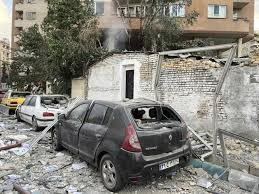India issues advisories to citizens in Israel, Iran: ‘Stay vigilant, avoid unnecessary movements’

As tensions surge in the Middle East following Israel’s airstrikes on strategic facilities in Iran, the Government of India has issued urgent safety advisories for Indian nationals residing or traveling in both Israel and Iran. These advisories, released by the Indian Embassies in Tel Aviv and Tehran, come in the wake of growing military activity and regional instability that pose serious security concerns for foreign nationals.
Escalation in the Region: Background
The latest advisory follows a significant escalation between Iran and Israel. Over recent weeks, Israel has reportedly intensified its military operations targeting Iran’s nuclear facilities, including sensitive sites such as Natanz, which is believed to house advanced uranium enrichment infrastructure. Iran has responded with heightened military preparedness and threats of retaliatory strikes.
These developments have created an atmosphere of uncertainty across the region, especially in cities like Tehran, Isfahan, and Tel Aviv, where foreign diplomatic missions and civilian populations remain on high alert.
India’s Advisory for Nationals in Iran
The Indian Embassy in Tehran issued a public statement urging all Indian nationals in Iran to exercise extreme caution. The embassy advised citizens to:
- Avoid non-essential travel within Iran, particularly to sensitive areas.
- Monitor and follow embassy updates via official social media channels and websites.
- Stay informed through local authorities regarding curfews, movement restrictions, or other public safety announcements.
- Ensure they have access to emergency contacts and maintain communication with family or the embassy.
The advisory also asked Indian residents to stay indoors during periods of elevated alert and avoid participation in public gatherings or protests, which could become flashpoints in times of political volatility.
India’s Advisory for Nationals in Israel
Similarly, the Indian Embassy in Tel Aviv has issued a parallel advisory for Indians living in or visiting Israel. As the country activates its civil defense systems in anticipation of potential counterattacks, the embassy has asked nationals to:
- Stay near shelter zones and familiarize themselves with local emergency protocols.
- Avoid crowded places, marketplaces, and non-essential public events.
- Stay connected with embassy channels and obey alerts from Israel’s Home Front Command.
- Prepare an emergency kit, including documents, food supplies, and essential medications.
The embassy also reassured citizens that it was monitoring the situation closely and would offer consular assistance if the situation deteriorated further.
No Evacuation Yet, But Preparedness is Key
While the advisories stop short of recommending evacuation, they reflect a clear acknowledgment of the volatile security environment. Officials from India’s Ministry of External Affairs (MEA) have stated that no mass evacuation is currently being considered, but contingency planning is in place if the situation escalates.
In the past, India has successfully carried out emergency evacuation operations such as Operation Ganga in Ukraine and Operation Devi Shakti in Afghanistan. A similar plan could be activated if required, depending on the evolving threat level.
Indian Diaspora Reaction
The advisories have created a ripple of concern among Indian expatriates, many of whom work in IT, medicine, education, or trade-related sectors in Israel and Iran. Several Indian students studying in Israeli universities have reportedly contacted embassy helplines seeking clarification and guidance.
“Classes have moved online, and we’ve been told to always stay near shelters,” said Aman Raj, an engineering student in Haifa. “It’s a tense atmosphere, but the embassy is keeping us informed.”
In Iran, where a smaller Indian community resides, concerns are focused on connectivity and access to reliable news. Internet restrictions and censorship have occasionally made it harder for people to stay updated.
Global Reactions and India’s Neutral Stance
Internationally, several countries have expressed concern over the renewed hostilities in the Middle East. The United Nations, European Union, and United States have all called for de-escalation and diplomatic dialogue. However, both Iran and Israel remain locked in a strategic standoff with little immediate sign of compromise.
India has maintained a balanced diplomatic stance, urging both nations to resolve their differences through peaceful means. Given India’s friendly ties with both Tehran and Tel Aviv, any regional instability poses a unique challenge to its foreign policy and economic interests, especially in terms of oil imports, diaspora safety, and strategic partnerships.
Travel and Safety Recommendations for Indian Citizens
For Indian nationals currently in Israel or Iran—or those planning to travel to the region—the MEA recommends:
- Postpone non-essential travel to either country.
- Register with the Indian Embassy using their citizen outreach portals.
- Download local safety apps like Israel’s Home Front Command alert app.
- Follow travel advisories posted on mea.gov.in and official embassy websites.
- Keep family members informed about your location and status.
Looking Ahead
As the situation unfolds, India’s embassies in the region remain key sources of verified information and support. The advisories reflect a proactive approach to citizen safety, especially at a time when misinformation and panic can escalate risks.
While the hope remains for de-escalation through diplomatic channels, the situation is fluid. Indian citizens abroad are reminded that preparedness and vigilance are essential tools in navigating uncertain times.






